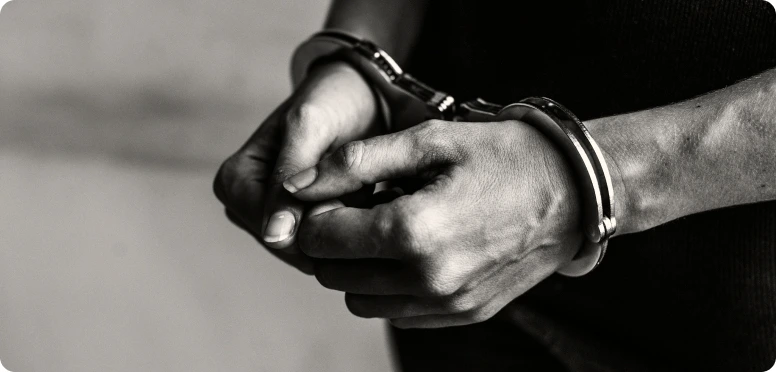
About Criminal Law
R C S Law Firm specializes in criminal jurisprudence. We have dedicated and specialized Advocates including former Judge, retired Public Prosecutor, retired law Professor, handling cases under the Indian Penal Code/(Bharatiya Nyaya Sanhita) and other special Acts. We have specialists dealing in almost every branch of the criminal and quasi- criminal cases such as Murder Cases, Attempt to Murder Cases, Criminal Defamation Cases, Financial Fraud Cases, Forgery Cases, Passport Act Cases, Dowry Harassment (498 A) Cases, Maintenance Cases, Domestic violance cases, Narcotic Drugs and Psychotrophic Substances (NDPS) Cases,Cyber crime cases, Bitcoin Crimes (Crypto Currency) Cases, Sexual Harassment and Rape Cases, POCSO (Child Sexual Abuse) Cases, Negotiable Instruments Act (Cheque bounce) Cases, Organized Crime (KCOCA) Cases, Immoral Trafficking Act Cases, ED (Enforcement Directorate) Cases, Hawala Transaction Cases, Criminal Trespass Cases, Motor Vehicle Cases, Traffic Violation Cases (Drink and Drive), Forest and wildlife act cases, Human Rights Case, Habeous Corpus.
We Competently handle anticipatory bails, regular bails, transit bails and interim bails. In suitable cases we get the criminal cases quashed by the High Court.
Criminal law is a branch of law that deals with crimes and their punishment. It is the body of law that defines criminal offenses, regulates the apprehension, charging, and trial of suspected persons, and fixes penalties and modes of treatment applicable to convicted offenders. Criminal law is designed to protect society by deterring criminal behavior and punishing those who violate the law.

Some important Principles of Criminal Law
 The Presumption of Innocence: Every accused person is presumed to be innocent until proven guilty.
The Presumption of Innocence: Every accused person is presumed to be innocent until proven guilty. The Double Jeopardy: No person shall be punished twice for the same offence.
The Double Jeopardy: No person shall be punished twice for the same offence. The Right Against Self-Incrimination: No person shall be forced to give evidence against himself.
The Right Against Self-Incrimination: No person shall be forced to give evidence against himself.
 The Right to Legal Representation: Every accused person has the right to engage lawyer of his choice.
The Right to Legal Representation: Every accused person has the right to engage lawyer of his choice. The Compounding of Offenses: Not allowed in serious crimes.
The Compounding of Offenses: Not allowed in serious crimes. The Juvenile Justice: Children below 18 years are tried in special juvenile boards.
The Juvenile Justice: Children below 18 years are tried in special juvenile boards.
 The Right to Fair Trial and Speedy Trial: Every accused person has a right for his case to be tried quickly and in a very fair and transparent manner.
The Right to Fair Trial and Speedy Trial: Every accused person has a right for his case to be tried quickly and in a very fair and transparent manner. Jail and Bail: Bail is the rule and jail is the exception.
Jail and Bail: Bail is the rule and jail is the exception. The Death Penalty: Only in rarest of rare cases.
The Death Penalty: Only in rarest of rare cases.
Some of the statutes governing criminal matters
 The Indian Penal Code (IPC)/Bharatiya Nyaya Sanhita, 2023
The Indian Penal Code (IPC)/Bharatiya Nyaya Sanhita, 2023 The Code of Criminal Procedure (CrPC)/Bharatiya Nagarika Suraksha Sanhita, 2023
The Code of Criminal Procedure (CrPC)/Bharatiya Nagarika Suraksha Sanhita, 2023 The Indian Evidence Act/Bharatiya Sakshya Adhiniyam, 2023
The Indian Evidence Act/Bharatiya Sakshya Adhiniyam, 2023 The Narcotic Drugs and Psychotropic Substances Act, 1985
The Narcotic Drugs and Psychotropic Substances Act, 1985 The Prevention of Corruption Act, 1988
The Prevention of Corruption Act, 1988 The Protection of Children from Sexual Offences (POCSO) Act, 2012
The Protection of Children from Sexual Offences (POCSO) Act, 2012 The Unlawful Activities (Prevention) Act, 1967
The Unlawful Activities (Prevention) Act, 1967 The Juvenile Justice (Care and Protection of Children) Act, 2015
The Juvenile Justice (Care and Protection of Children) Act, 2015 The Motor Vehicles Act, 1988
The Motor Vehicles Act, 1988 The Information Technology Act, 2000
The Information Technology Act, 2000 The Protection of Women from Domestic Violence Act, 2005
The Protection of Women from Domestic Violence Act, 2005 The Dowry Prohibition Act, 1961
The Dowry Prohibition Act, 1961 The Scheduled Castes and the Scheduled Tribes (Prevention of Atrocities) Act, 1989
The Scheduled Castes and the Scheduled Tribes (Prevention of Atrocities) Act, 1989 Call us: +91 9845054565
Call us: +91 9845054565